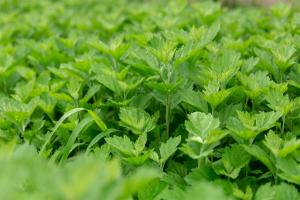Can I Give My Plants Tap Water?
For many plant owners, the question of whether or not to use tap water for their plants is a common one. The answer, however, is not straightforward. While tap water is safe for human consumption, it can sometimes be harmful to plants. In this article, we will explore the issue and give you some tips on how to best take care of your plants.
The Composition of Tap Water
The composition of tap water can vary depending on where you live. In most households, tap water contains minerals like magnesium, calcium, and potassium, as well as trace elements like zinc, copper, and iron. These minerals are essential for human health and can also benefit plants. However, some tap water may also contain high levels of chlorine, fluoride, or other chemicals. These chemicals can be toxic to plants when they are present in high concentrations.
The Effects of Tap Water on Plants
When plants are exposed to tap water, they can experience a range of effects depending on the composition of the water. In some cases, tap water can cause leaf burn, which appears as brown or yellow spots on the leaves. This occurs when water droplets on the leaves evaporate and leave behind concentrated minerals and chemicals. Over time, these deposits can cause the leaves to die. Additionally, tap water with high levels of chemicals like chlorine or fluoride can damage plant roots, leading to stunted growth or even death.
How to Use Tap Water for Plants
Despite some of the negative effects of tap water on plants, it is possible to use tap water to keep your plants healthy. Here are some tips:
Let the water sit out before using it: This will allow any chlorine or other chemicals to evaporate before you use it on your plants.
Consider using a water filter: A water filter can remove harmful chemicals and minerals from tap water, making it safer for plants.
Get to know the composition of your tap water: Contact your local water treatment facility to find out what chemicals are present in your tap water. This will help you make informed decisions about how to care for your plants.
Alternatives to Tap Water
If you are worried about the effects of tap water on your plants, there are alternatives you can use. Here are a few:
Rainwater: Collecting rainwater in a barrel or other container can provide your plants with a natural, chemical-free source of water.
Distilled water: Distilled water is free of minerals and chemicals and can be a good alternative to tap water for indoor plants.
Bottled water: If you are particularly concerned about the composition of your tap water, bottled water can be a safe alternative to use on your plants.
Conclusion
In conclusion, the answer to the question of whether or not to use tap water for your plants is not a simple one. While tap water can be harmful to plants in some cases, it is still possible to use it safely. By taking the time to learn about the composition of your tap water and taking steps to mitigate any potential harm, you can keep your plants healthy and happy.

 how many times do yo...
how many times do yo... how many planted tre...
how many planted tre... how many pine trees ...
how many pine trees ... how many pecan trees...
how many pecan trees... how many plants comp...
how many plants comp... how many plants can ...
how many plants can ... how many plants and ...
how many plants and ... how many pepper plan...
how many pepper plan...































